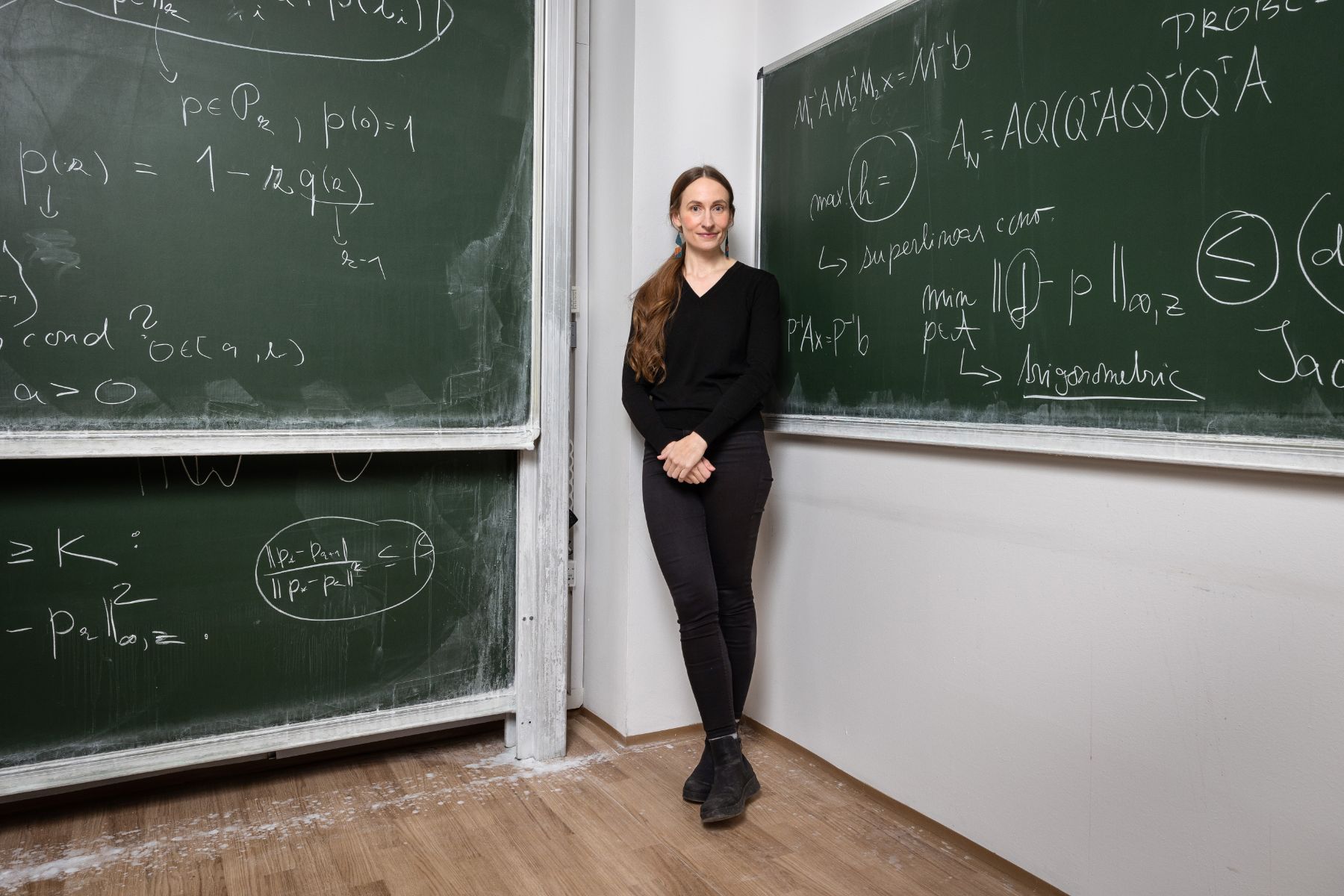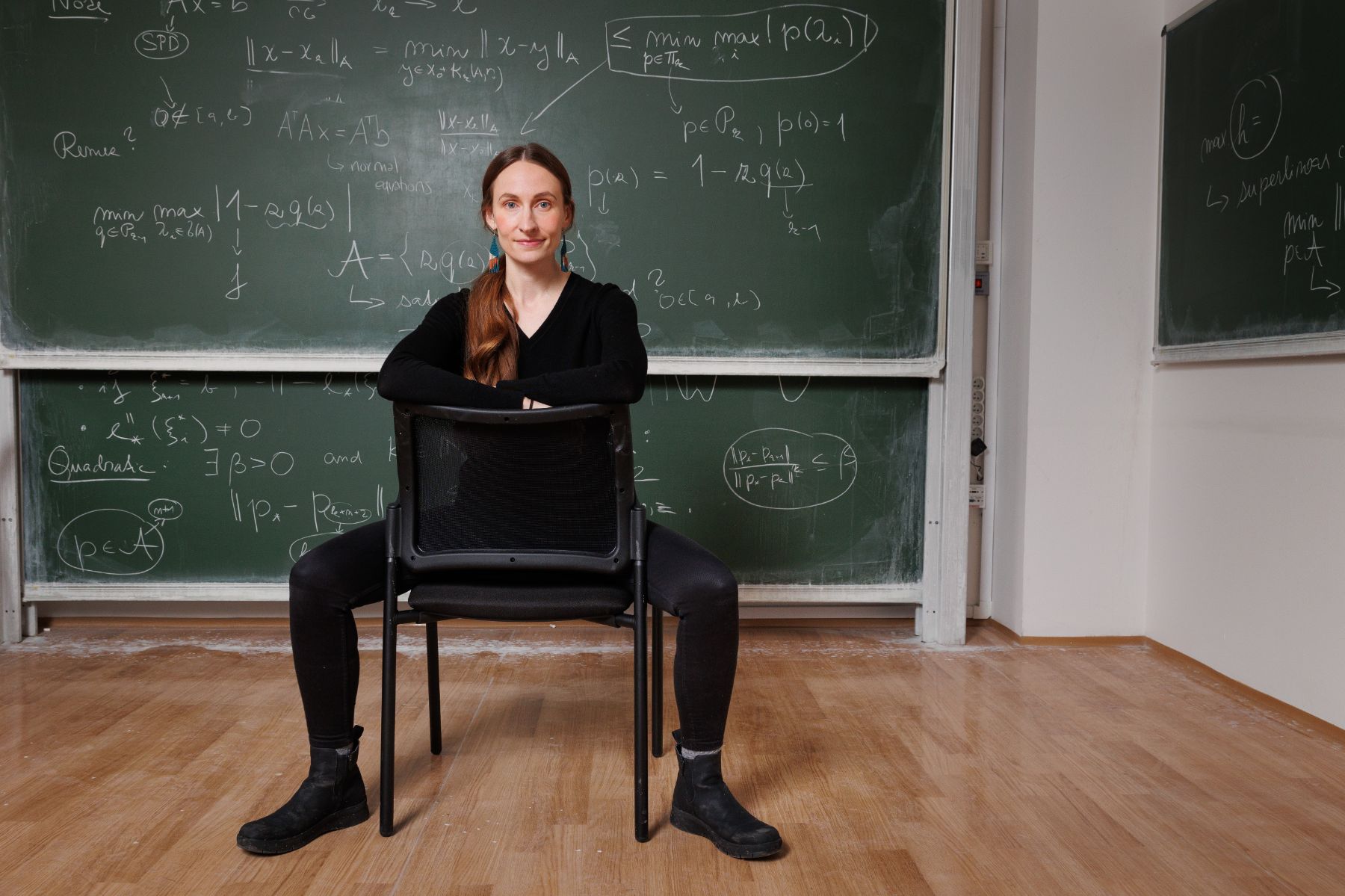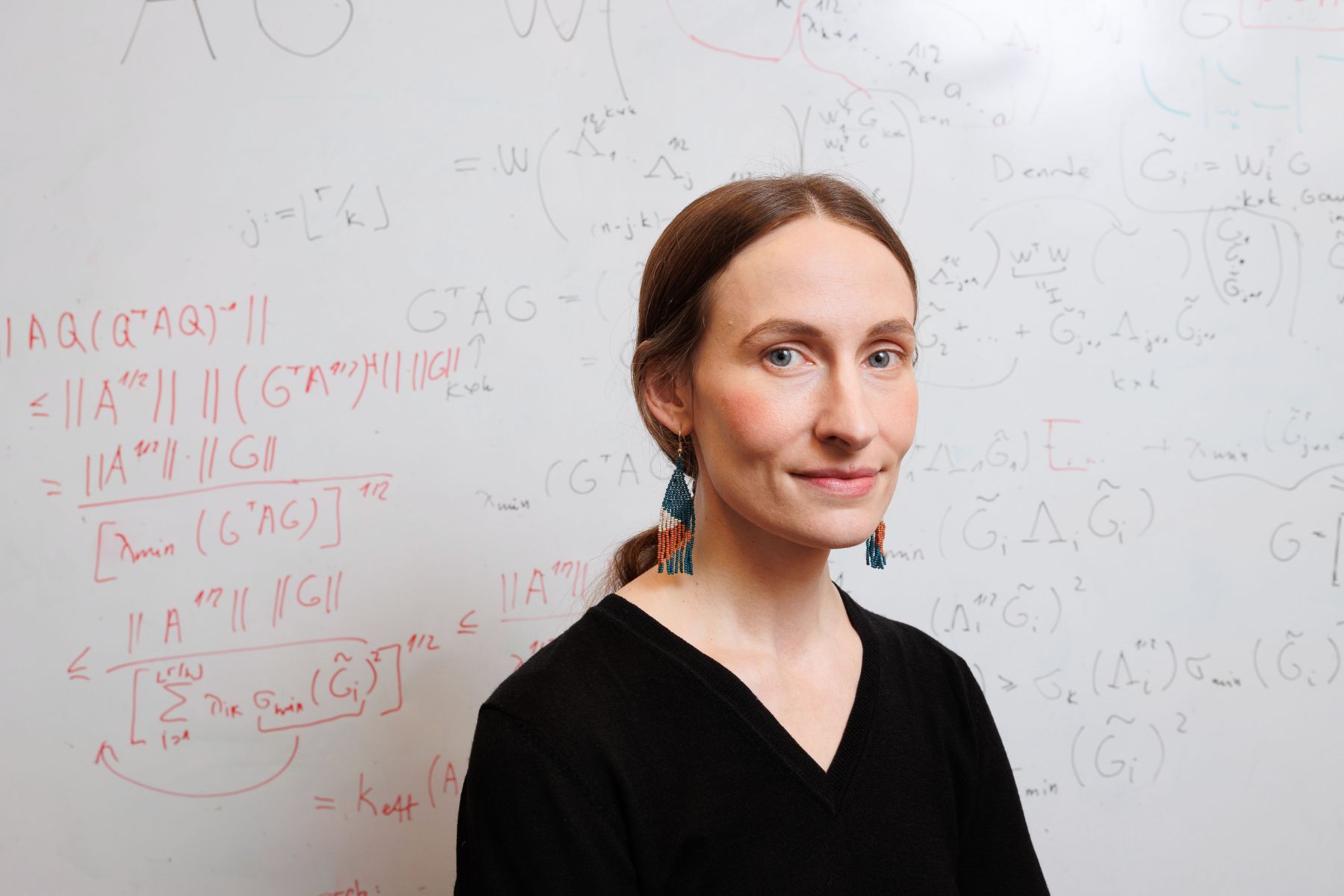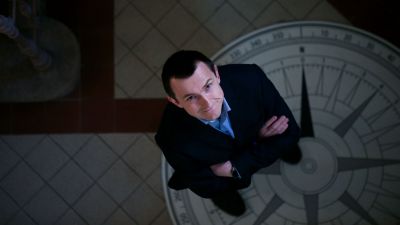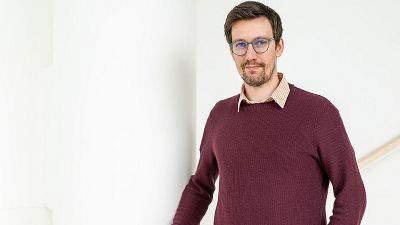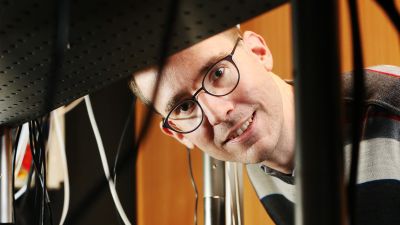One at Charles University, three in the Czech Republic and a total of 408 - these are the statistics of this year's European Research Council junior grants (ERC Starting). Erin Carson from the Faculty of Mathematics and Physics at Charles University will analyse numerical computations and search for new algorithms for computational systems thanks to a five-year grant.
“The goal of my ERC project is to change the way people think about designing and analyzing computational algorithms for really big computers, the biggest supercomputers in the world,” explains Erin Carson, a Computer Science graduate from the University of Virginia who received her Ph.D. from the University of California, Berkeley and is now in her fourth year at the Faculty of Mathematics and Physics at Charles University.
“For most applications, it is almost impossible to achieve maximum performance on computers this large. That's why approximations – simplifying the problem being solved at various levels – are used to get better performance. But our current problem is that we don't understand it very well, we don't know what's going on 'inside', how different kinds of intentional inaccuracies affect the results we get,” says the new ERC grant holder. She points out that understanding inaccuracies and how they interact is increasingly finding applications in many areas of computing, in more efficient data processing, machine learning, as well as numerical weather prediction, and many other mathematical modeling applications. “There is a real need for such an understanding now, this June we opened the era of 'exascale computing', which in turn brings entirely new possibilities and is expected to bring great development in this computing area.”
|
ERC Starting grants 2022 These are for young early career scientists who are two to seven years away from completing their PhD. Winning a grant will enable them to start their own research group and pursue topics that have the potential to significantly advance our human knowledge. A total of 408 projects from 26 countries were supported in this year's call, with the highest number of projects in Germany (81), the UK (70), the Netherlands (40), and France (39). Three ERC Starting Grants are going to the Czech Republic. In addition to Erin Carson, the ERC grant received Madalina Bianca Moraru from Masaryk University, who will address the topic of refugees from a legal perspective, and Johana Wyss from the Institute of Ethnology, Czech Academy of Sciences, who will research populism. This year, the expert committees selected from more than three thousand applications, resulting in a 14percent success rate. Funding for the projects, worth a total of €636 million, will create more than two thousand staff positions for PhD students, postdocs, and other staff. |
The key is the combination
Erin Carson's ERC project will focus on linking the analysis of individual sources of inaccuracy when using algorithms for numerical computation. “Now, people analyze approximations and their errors and try to understand them in isolation, I'm going to try to study them together, holistically, because they are connected and interact. The result could be modifications to methods and algorithms that could be used to improve performance in a variety of applications,” explains the scientist, who uses insights from both mathematics and computer science in her work, as well as combining the development of theory “on paper and on the blackboard” with numerical experiments. “In the first step, I use paper and pencil to analyze algorithms, then I implement new ideas in computer codes and test them in computer models. And that's what I enjoy most about it when I can figure out how it could be and then verify on the computer that it is.”
“Strakoš matrix”
What made a graduate of prestigious American universities to work in the Czech Republic? “In 2016, Zdeněk Strakoš invited me for a summer internship and I liked it here – the numerical mathematics here is at an excellent level. Zdeněk encouraged me to apply for the internal grant Primus, which was successful, and two years later I started my own research team at Matfyz,” explains Erin Carson of her Czech experience, which can be traced back to a conference in Spain a few years earlier.
“As a Ph.D. student, I gave a talk there and in my work, at the time I used data that I called the 'Strakos matrix'. I had no idea that Zdeněk Strakoš was in the audience. He even asked me questions at the end of the lecture and I only found out in retrospect from a colleague that it was him!” Subsequently, they met at other conferences and their collaboration deepened. “Zdeněk is a role model for me in how to approach research in numerical mathematics and computational sciences. He puts emphasis on really understanding things and principles, not just applying available techniques. He is wonderful professionally and personally, and is a true mentor to me.”
And Zdeněk Strakoš himself adds: “I really appreciate working with Erin, it's a great pleasure. She could choose from a number of very important world institutions. The fact that she is working at our faculty is an extraordinary asset for Charles University and I believe that she will soon have a permanent position and perspective. May we attract as many such extraordinary human and professional personalities as possible.”
According to Erin Carson, Czech science is no different from that abroad and she especially appreciates the open environment for international corporations in the Czech Republic. “A career in science has its pitfalls, but at the same time, it offers great flexibility. It was very difficult for me to choose one particular field, so I am happy that I can combine approaches from both mathematics and computer science in my work. This opens up many different topics and applications that I can work on. Moreover, these interdisciplinary approaches are becoming increasingly important in science,” she emphasizes. What are her future plans? “I'm clear for five years, then we'll see. Hopefully, I will be able to find more interesting questions for the next ERC grant, for example,” she adds with a smile.
| Erin Claire Carson, Ph.D. |
| Erin Claire Carson studied computer science at the University of Virginia, followed by a Ph.D. at the University of California Berkeley. Then she spent three years as a postdoctoral fellow at the Courant Institute of Mathematical Sciences, New York University. Since 2018, she has been working at the Department of Numerical Mathematics, Faculty of Mathematics and Physics, Charles University. The grant PRIMUS has provided her with independence and the opportunity to form her own group since 2019. Her research interests are at the intersection of numerical linear algebra, high-performance computing, and parallel algorithms. This year she was awarded a five-year ERC Starting grant for a project entitled: Analyzing and Exploiting Inexactness in Exascale Matrix Computations. |


